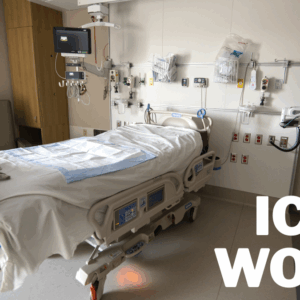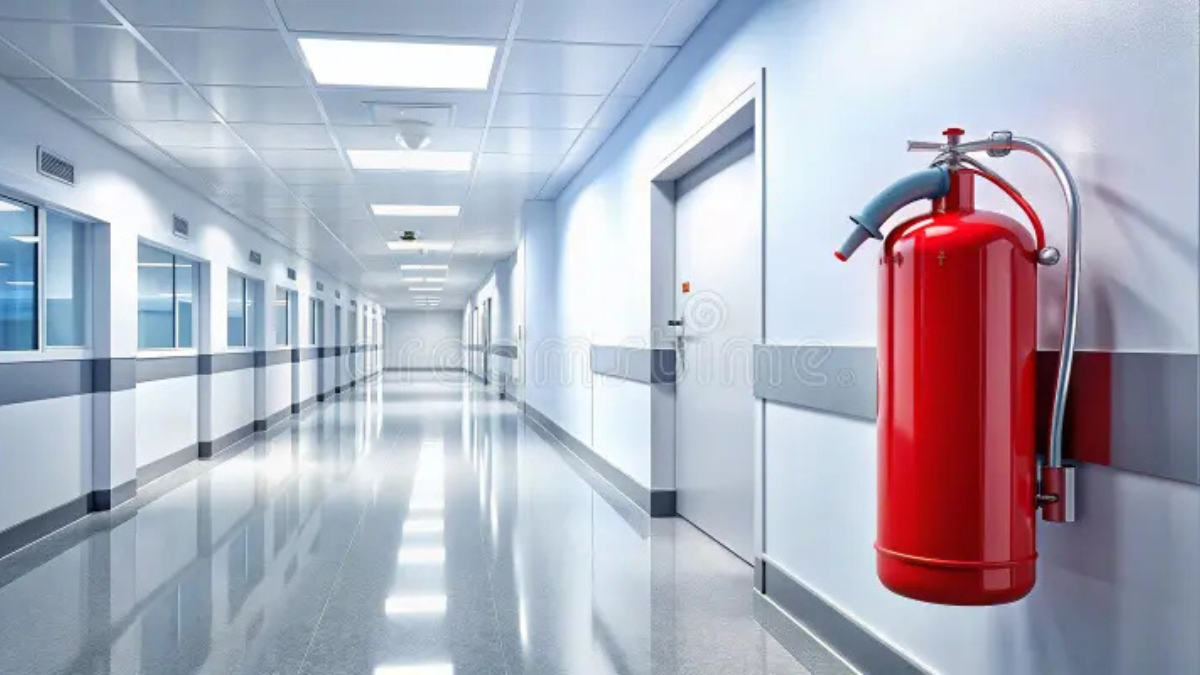Government hospitals play a critical role in delivering accessible healthcare to millions of people, particularly in countries with large populations and limited income resources. These hospitals are publicly funded and aim to provide equitable medical services regardless of an individual’s financial status. But what exactly can a patient expect when they walk into a government hospital? This article breaks down the range of services, systems, and support offered by government hospitals and explores their relevance in today’s healthcare landscape.
Key Takeaways
- Government hospitals offer a wide range of healthcare services, mostly free or subsidized.
- Services include emergency care, outpatient/inpatient treatment, maternal-child health, surgeries, diagnostics, and mental health support.
- They are crucial for lower-income populations and often serve as teaching hospitals.
- Common challenges include overcrowding and limited funding, but reforms are improving quality and accessibility.
- Digital health, telemedicine, and public health campaigns are increasingly part of government hospital services.
Understanding the Role of Government Hospitals
Why Government Hospitals Matter
Government hospitals are essential to a country’s public health infrastructure. They serve as a safety net for economically disadvantaged populations and often handle the largest patient loads. In addition, they are key participants in national healthcare schemes, emergency response, and public health campaigns.
Accessibility and Affordability
One of the greatest strengths of government hospitals is their affordability. Most services are free or come at a highly subsidized cost. This affordability ensures that even the poorest segments of society can receive timely and necessary care.
Types of Services Offered by Government Hospitals
Government hospitals are often comprehensive in their offerings, ranging from preventive care to complex surgical procedures. Below are the main categories of services you can expect:
Emergency and Trauma Care
Government hospitals are usually the first responders to emergencies. Many of them operate 24/7 emergency departments capable of managing:
- Road accidents
- Natural disaster injuries
- Burns and trauma
- Poisoning and drug overdose
- Acute infections or illnesses
They are equipped with ambulances, trauma centers, and trained emergency physicians to manage critical cases.
Inpatient and Outpatient Services
Outpatient Department (OPD)
OPDs are the backbone of public hospitals, offering daily consultations across various specialties such as:
- General Medicine
- Pediatrics
- Orthopedics
- ENT
- Gynecology
- Psychiatry
- Dermatology
Inpatient Department (IPD)
Patients requiring admission receive care through inpatient departments. Services include:
- General ward and ICU admissions
- Post-operative care
- Maternal care
- Infectious disease monitoring
- Long-term treatment support
Maternal and Child Health Services
Maternal and child healthcare is a priority in most government hospitals due to its importance in public health.
Services include:
- Antenatal check-ups
- Safe childbirth facilities
- Immunization programs
- Postnatal care
- Pediatric emergency services
- Nutrition counseling
Many hospitals also participate in government-sponsored maternity schemes, providing financial incentives for institutional deliveries.
Diagnostic and Laboratory Services
Modern government hospitals offer diagnostic and laboratory facilities such as:
- X-rays and ultrasounds
- Blood tests and urine analysis
- CT scans and MRIs (in larger hospitals)
- ECG and EEG
- Biopsy and pathology services
Many of these tests are offered at no cost under national healthcare programs.
Surgical and Specialized Treatments
Depending on the hospital’s size and infrastructure, surgical services can include:
- General surgery
- Orthopedic surgery
- Gynecological procedures
- Ophthalmic (eye) surgeries
- Urological procedures
- Minor and major trauma surgeries
Specialized departments often provide advanced treatments, sometimes in collaboration with teaching institutions or medical colleges.
Pharmacy and Medication
Government hospitals usually have in-house pharmacies where patients can obtain medicines prescribed by doctors for free or at subsidized rates. These pharmacies are stocked according to the Essential Medicines List (EML) to ensure availability of critical drugs.
Mental Health and Counseling Services
In response to growing mental health awareness, many government hospitals now provide:
- Psychiatric consultations
- Medication for mental illness
- Psychological counseling
- De-addiction programs
- Support groups
These services are especially vital in rural areas where access to mental health care is otherwise limited.
Public Health and Preventive Programs
Public health initiatives are a cornerstone of government hospitals. These include:
- Vaccination drives (polio, hepatitis, COVID-19)
- Malaria and dengue prevention
- Tuberculosis (DOTS) treatment
- Family planning and reproductive health
- Nutrition and anemia awareness programs
These hospitals work closely with government agencies to reach as many people as possible through free camps and community outreach.
Training and Medical Education
Many government hospitals are teaching hospitals affiliated with medical colleges. They offer:
- Residency training for doctors
- Internships for medical students
- Nursing education
- Paramedical training
These hospitals play a pivotal role in creating a qualified healthcare workforce.
Telemedicine and Digital Services
As technology becomes more integrated into healthcare, several government hospitals now offer:
- Online consultation appointments
- Digital medical records
- Telemedicine services for rural areas
- SMS-based health alerts
Digital initiatives make it easier for patients in remote regions to access qualified medical advice.
The Infrastructure of a Typical Government Hospital
Ward System
Most government hospitals follow a tiered ward system:
- General Ward – Free or minimal cost, shared by multiple patients
- Semi-private Ward – Moderate fee, fewer beds per room
- Private Ward – Higher fee, individual room for patient privacy
Specialized Units
Larger hospitals may also include:
- ICU (Intensive Care Unit)
- NICU (Neonatal ICU)
- Dialysis units
- Burns units
- Cancer care centers
Supporting Staff
A typical government hospital includes a wide range of personnel:
- Doctors and resident physicians
- Nurses and midwives
- Lab technicians
- Pharmacists
- Administrative and support staff
Challenges Faced by Government Hospitals
Despite their broad service coverage, government hospitals are not without issues:
Overcrowding
Many government hospitals face overwhelming patient loads, especially in urban centers. This leads to long waiting times and high stress on staff.
Funding and Resources
Limited funding can result in outdated equipment, infrastructure issues, and medicine shortages.
Staffing Gaps
Due to high demand and limited salaries, some government hospitals experience a shortage of qualified personnel.
Maintenance and Hygiene
Cleanliness and infection control can be problematic in poorly managed facilities, especially in densely populated areas.
Reforms and Improvements in Recent Years
Governments worldwide have recognized these issues and have taken steps to improve conditions:
- Infrastructure Modernization: New buildings, better sanitation, and advanced medical equipment.
- Digital Health Programs: National digital health IDs and online appointment booking.
- Recruitment Drives: Hiring more healthcare professionals and offering training programs.
- Public-Private Partnerships (PPPs): Collaborating with private entities to improve efficiency and service delivery.
- Conclusion
- Government hospitals remain one of the most important pillars of public healthcare systems worldwide. They offer a wide range of services, from emergency care and maternal health to diagnostics, surgeries, and mental health counseling — often at little to no cost. Despite facing significant challenges like overcrowding and resource limitations, continuous efforts by governments to modernize and improve these institutions are steadily enhancing their performance.
- Whether you’re seeking treatment for a sudden illness, long-term care for chronic conditions, or preventive health services, government hospitals provide a crucial and dependable resource for millions. As reforms continue, their role will only become more integral to shaping a healthier society.
7 FAQs
Are treatments in government hospitals really free?
Yes, most treatments in government hospitals are either free or heavily subsidized, especially under national health schemes. However, private wards or certain procedures may carry minimal charges.
Can anyone use government hospital services?
Absolutely. Government hospitals are open to all citizens, irrespective of income or social status. Many hospitals also cater to migrants, homeless individuals, and travelers.
Are the doctors in government hospitals qualified?
Yes, government hospitals employ certified and often highly experienced medical professionals. Teaching hospitals also have specialists and consultants on board.
Do government hospitals offer surgery?
Yes, most government hospitals have full surgical departments including operation theaters and post-op care units. Availability may vary based on the hospital’s size.
What should I carry to a government hospital for treatment?
Carry your ID proof, previous medical records (if any), and any relevant insurance scheme card like Ayushman Bharat or state health cards.
Can I get medicines for free?
Yes, essential medicines listed by the hospital are usually provided for free through its pharmacy.
Is emergency care available 24/7?
Yes, all government hospitals have emergency services that are operational 24/7 and equipped for trauma care, resuscitation, and stabilization.






